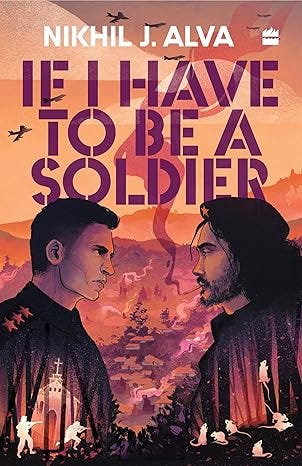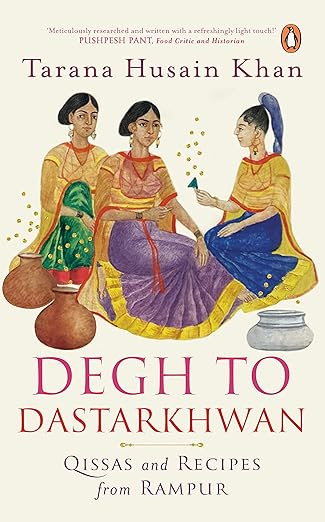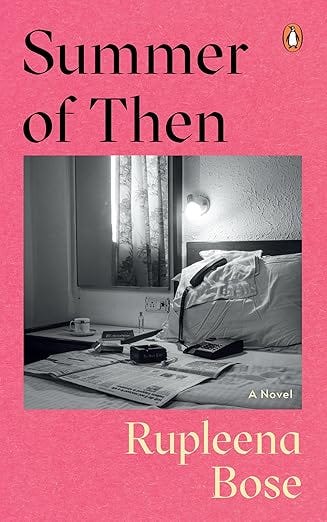Glimpses of my beautiful day at GALF 2025
Books, conversations, memories from the Goa Arts & Literature Festival, endearingly known as GALF.
Last weekend, I had the privilege of spending a few hours at the Goa Arts & Literature Fest. Endearingly known as GALF, the fest takes place annually, and attracts a diverse milieu of poets, writers, journalists, and creators.
The sessions take place at the India International Centre in Dona Paula, in three physical spaces – Mandovi and Zuari halls, aptly named after Goa’s rivers, and Abolim, Goa’s state flower (botanical name - crossandra infundibuliformis).
My morning at the fest kicked off with a generous dose of poetry recited in English, Hindi, Konkani and Urdu. Two in particular really resonated with me. “Mhadei” by Salil Chaturvedi, has a sensuous, intimate quality to it, and is an ode and a celebration of Goa’s water lifeline river, which is threatened, with each passing day.
“Do you reach out from Cumbarjua to hold Zuari’s hand, and weep out your salt to the sea, amongst the encrusted plaque of casinos, do I dare bring my mouth to yours?”
”Mhadei” by Salil Chaturvedi
Listen to the full piece by the author below!
The other, is the title poem of “The Story of Eve”, a collection of Urdu poetry by legendary poet Zehra Nigah, translated into English by Rakshanda Jalil. I’ve never heard the story of Eve from the perspective of Eve, quite like I did in Zehraji’s poetry, and it had a profound effect on me. Her poetic style is gentle, subtle, and there’s an unsaid quality about her verses.
But the underlying theme is of quiet resistance, starting from the very first woman Eve. The session featured Rakshanda Jalil and was led by Annie Zaidi, who expertly navigated the conversation to unravel the life and times of Zehra Nigah, the joys and challenges of translation, poetic themes, and the state of Urdu women poets, today.
Around one and a half person in the audience, literally, had heard of Zehra Nigah (now 89 years). Yet, a whole new generation, in fact, multiple generations were introduced to her universe that day. And that, I realized is the beauty of lit fests like GALF.
Read excerpts here
Lessons from Mizoram
As the day progressed, another session “Lessons from Mizoram” captivated my attention. It was hosted by Nikhil J Alva, author of “If I Have To Be A Soldier”, a work of fiction set against the very real, and violent war-torn Mizoram in 1966. The session was an interesting byproduct of his research and writing on such a serious topic, though set in a fictional context.
I suspect that as a little boy, the author, the son of a prominent politico, had a gallery seat to events that were shaping the fate of the nation. He narrated some memorable anecdotes connected to Mizoram. For some little kids, such events are a blimp in the horizon. For others, they shape their worldview, and future path. In this case, the author wrote a story that needed to be told, even though it is not necessarily his own.
He shared how he strategically addressed this gap - one of the protagonists is not a Mizo. He is a Mangalorean, Catholic boy whose parents are posted to Mizoram, and the story unfolds from his lens. As a writer, I am also faced with such dilemmas, and this is a fine example of how to write without cultural appropriation.
At the end of the session, an audience member asked him why he choose fiction over a non-fictional telling of the Mizo insurgency of 1966? Personally, I am thrilled that fiction won.
I plan to recommend this one for my book club, which meets once a month in South Goa. The content and style of the book should make for an interesting discussion over chai/ coffee/ wine and snacks.
"The humid air hung heavy, thick as the sweat that slicked his skin, as he stood at the edge of the jungle, his eyes scanning the tangled undergrowth. The silence was a living thing, punctuated only by the distant cry of unseen birds. He was a soldier, yes, but in this moment, he was just a boy from a small village in Goa, a world away from the familiar rhythm of the monsoon rains and the scent of spices in his mother's kitchen. 'If I have to be a soldier,' he thought, 'I will be one who sees beyond the bullets, who protects not just his country, but the innocence that still lives within me.'
“If I Have to Be A Soldier” by Nikhil J Alva
Read an excerpt here
Can writers be nature’s greatest allies?
Amidst all the adult books chatter, I stumbled upon some interesting children’s books dedicated to an evergreen theme - nature. Nirmal Ulhas Kulkarni, a professional herpetologist, was in conversation with Arthy Muthanna Singh, a writer and publisher of children’s books. Nirmal’s love for snakes has earned him the epithet “Snake Man”. He says that he interacts with at least one snake a day, and that every day, a snake is quietly watching us from their little corner, here in Goa :)
The panelists talked about their books, which were especially written for children, featuring snakes and other wonderful creatures. Their session made me realise that in a world where our fragile biodiversity is threatened, every day, writers can be nature’s great allies.
The feminine energy in all its glory
This year, I had an opportunity to volunteer at GALF, which made the experience more immersive. But once I was done with my volunteering stint, I was free to attend sessions as I pleased. I felt like a kid in a candy store, because at any given time GALF has sessions happening, simultaneously, in three different halls!
A session inspired by the books of Dr Tarana Husain Khan on Rampuri cuisine and culture, in conversation with dancer Anita Ratnam, caught my attention.
I enjoyed so many things about this particular session.
For one, I could feel feminine energy in the room in all its glory, and the passion with which the panelists pursued their projects.
Dr Khan shared some memorable anecdotes about Rampur’s Pathan connection and tradition, like the one below.
Books and horses have an important place in Pathan culture. When Pathan warriors left home on horseback, they carried along their books with them.
She also spoke of visiting a library in Rampur, which housed books from the 1800s, featuring palatial recipes in Persian. The Nawabs practiced gastro-diplomacy, which did not always end well. A visiting dignitary was invited to try a spoonful from 200 dishes; he fell ill by the end of lunch! The humour, history, and joy of the session, fully satiated me.
Bildungsroman with a single, Indian woman
Another memorable session for me was the debut novel of Rupleena Bose, titled “Summer of Then”. This particular book interested me for two reasons.
One, it falls in the “bildungsroman” or coming-of-age genre. But instead of a young boy or man as a protagonist, it features a single, Indian woman. I do believe we need more coming-of-age stories around Indian women because our lives are so radically different from our mother’s generations, and we need more insight into these lived experiences.
Secondly, the book is written in the first person. Writing in the first person appears both fascinating and challenging to me, especially, if the voice of the protagonist, has a different language, culture, and vibe, than me. There are grave chances of misrepresentation, and misappropriation.
From the author’s tone, I could sense her emotional investment in the life and times of her protagonist. She shared that she had taken great pains to capture the economics of her life, a constant struggle in an alien metropolis.
Will I enjoy the book, as much as I did listening to the author? Time will tell.
Read an excerpt here











Listened to the audio that you sent us Merill. Not only was the commentary interesting, but your well modulated voice and style of narrating made it a pleasure to listen. You captured so much about GALF in it. Wish I had attended. Thank you for sharing.
Such a wonderfully detailed account of GALF, doing justice to every session you attended Loved reading this